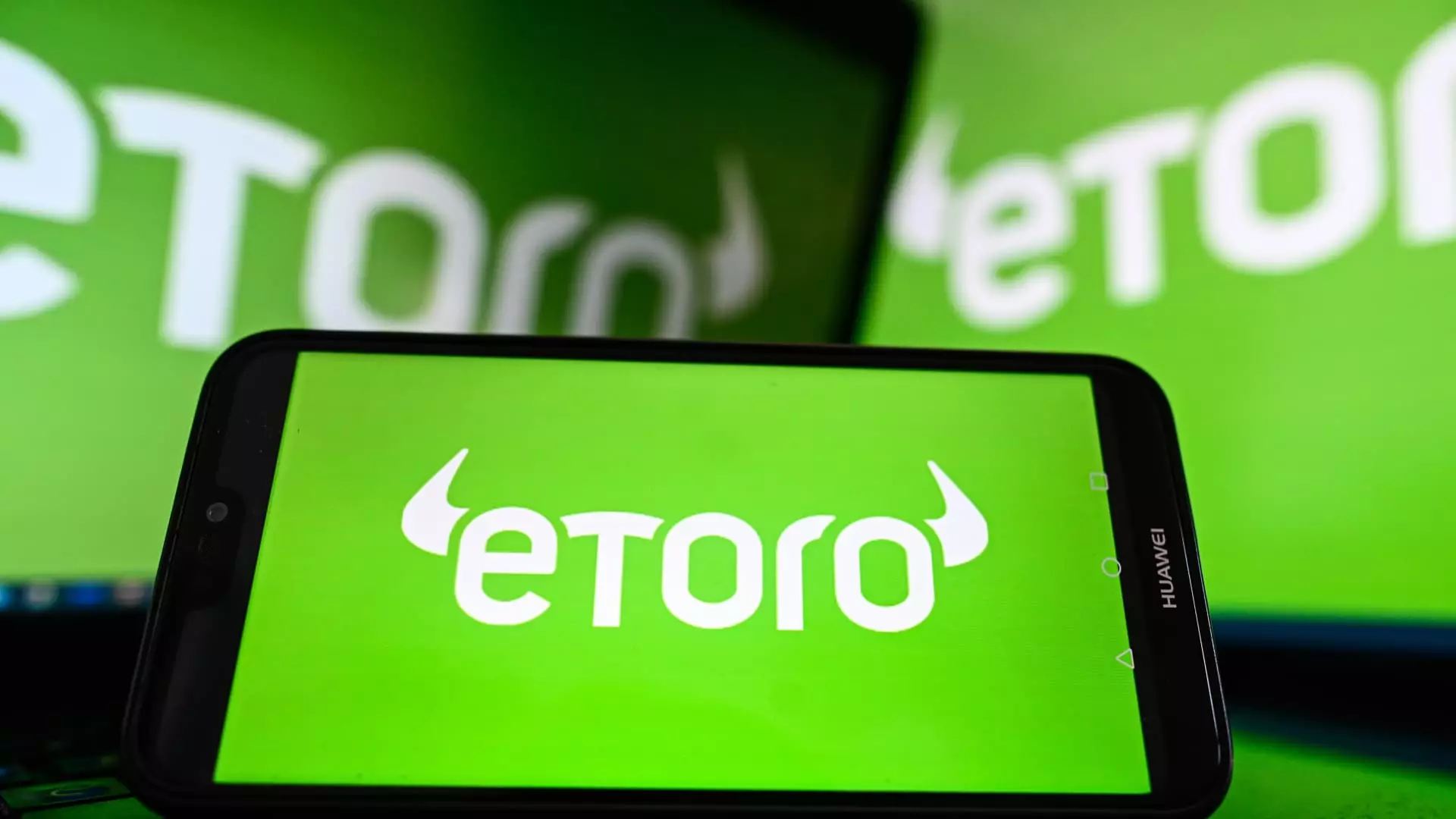In a financial climate long subdued by uncertainty and market corrections, eToro has thrust itself into the limelight with an impressive debut on the Nasdaq. Raising nearly $310 million through its initial public offering (IPO), the platform’s shares opened at a striking $69.69 — a remarkable 34% above the anticipated IPO price of $52. This level of enthusiasm is not merely a joyful blip on the radar; it signifies a pivotal moment for those watching the investment arena closely. Could this be the first glimmer of a resurgence in stock market interest?
The implications of eToro’s debut extend beyond the company itself; it’s a potential game-changer for the entire IPO landscape. Recent years have seen lackluster activity reflecting broader macroeconomic instability and apprehension, spurring companies to reconsider their listings. With a market capitalization soaring to $5.6 billion on its first trading day, eToro’s performance may invite a wave of new IPOs from companies long waiting in the wings.
Capturing the Robinhood Effect
As a competitor to Robinhood, eToro is positioned uniquely within a sector that democratizes trading. The platform is part of a larger narrative that promotes financial literacy and accessibility. Yoni Assia, the company’s CEO, spoke candidly about market volatility and geopolitical uncertainties, emphasizing the necessity for a stable environment before committing to their IPO. While some may perceive Assia’s optimism as naive, it is worth considering whether eToro’s performance can galvanize investor sentiment, capturing the interest of millennial and Gen Z investors drawn to mobile trading solutions.
Should we view eToro’s rise as an endorsement of modern finance methods that disrupt traditional brick-and-mortar brokerages? I would argue not only that we should, but that this shift represents an evolution of how we perceive both investment and ownership.
A Cautious Optimism Amidst Tariff Storms
It is important to highlight the context surrounding eToro’s decision to go public. Following President Trump’s tumultuous political landscape, many businesses experienced stagnation due to trade tariff concerns. Such fears had a palpable choking effect on companies’ willingness to explore public listings, leaving the market in a state of stagnation. Assia’s insight about “seeing the light at the end of the tunnel” hints at an optimistic forecast amid battlefield clouds. Yet, this is optimism laced with a caution befitting the seasoned broker.
Additionally, as eToro strides onto the public stage, it becomes critical for the company to manage its expectations. Past attempts to go public via a SPAC merger highlighted the volatility of investor sentiment and the precarious dance between entrepreneur dreams and market realities. As it stands, eToro’s future potentially relies on not just its own performance, but also broader macroeconomic conditions, especially in light of the tech sector’s current contraction and inflationary pressures.
Growth Beyond Crypto: The Bigger Picture
A salient feature of eToro’s financial profile is its accelerating growth beyond mere stock trading. Its engagement with cryptocurrencies has transformed the company’s revenue streams, with crypto trading contributing significantly to overall profitability. Moving from just 10% of its net trading contribution in 2023 to approximately 25% in 2024 reflects not only a keen adaptation to market trends but also an acknowledgment of the digital revolution in finance.
However, investors must tread carefully; the crypto space remains tumultuous and fraught with regulatory challenges. The foreboding shadow of potential regulations could render eToro’s fledgling strides into digital currencies a double-edged sword. Similarly, while eToro reports optimism about crypto’s continued relevance in generating commissions, an overreliance on this sector could jeopardize its long-term stability.
The Balancing Act of Investment and Innovation
Underpinning these developments is a broader challenge facing many fintech companies: striking the right balance between innovation and responsible investment. As eToro’s co-founder Yoni Assia and his colleagues continue to forge paths into new verticals, the company must ensure its operations remain ethical and sustainable, focusing on both their clients’ financial health and their corporate responsibility.
With Spark Capital as a significant stakeholder, eToro is likely to leverage its influential investor pool to streamline its growth trajectory. Nonetheless, high stakes bring high demands; as noted, now is not the time to falter.
In this dynamic financial environment, eToro’s stock market debut represents more than just a successful IPO. It is an invitation to re-examine our relationship with investment, explore new opportunities, and perhaps alter the very fabric of our economic landscapes. The era of the empowered retail investor is upon us, and eToro may just be shouting out a powerful call to action.

